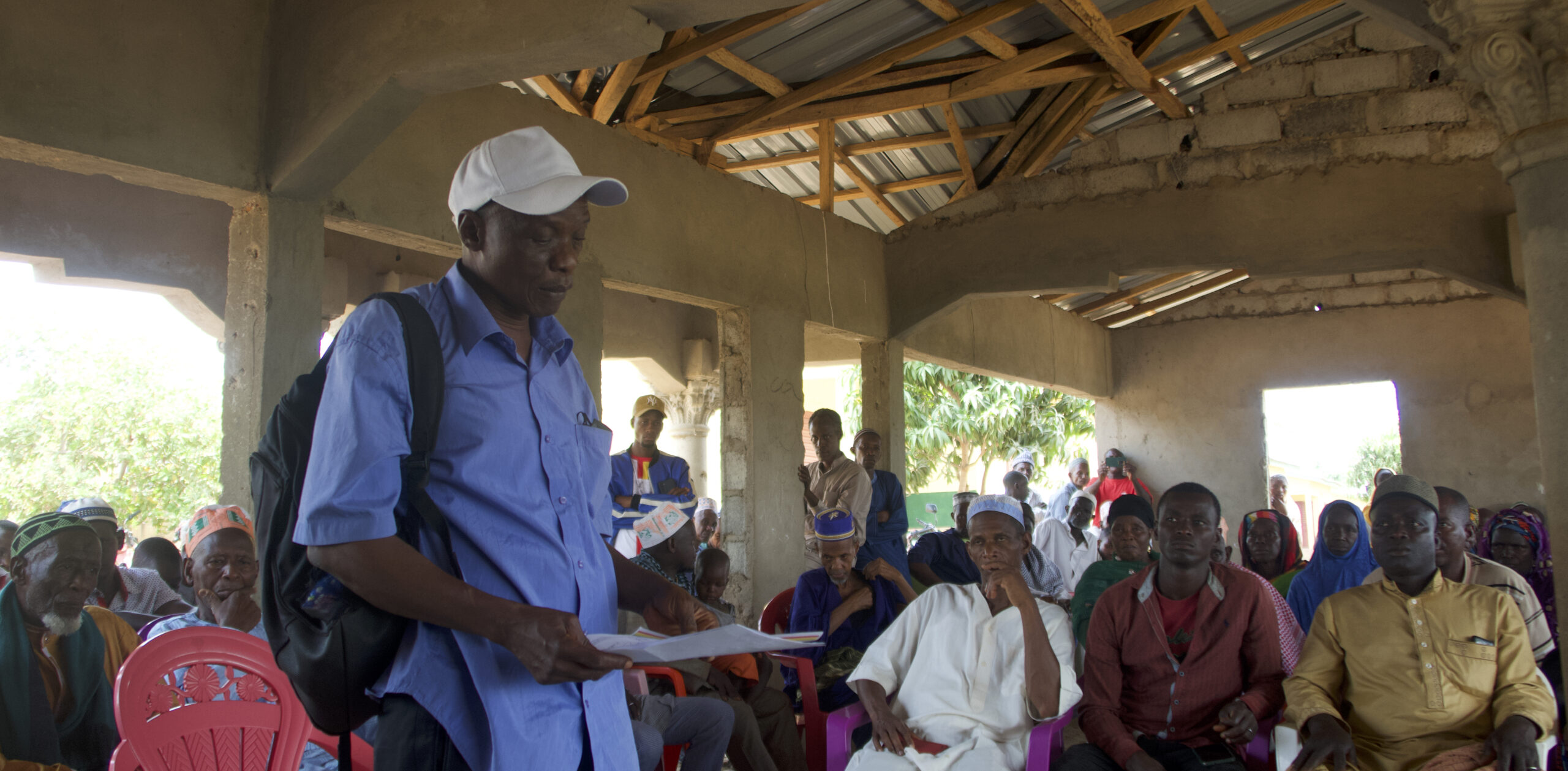By Genny Ngende, Senior Campaign Coordinator, Africa Program
Introduction
The Africa Program works in partnership with a local organization in Guinea, Centre du Commerce International pour le Développement (CECIDE). Individually and collectively, we conduct research, engage with government and economic actors, publish reports and organize workshops for communities adversely impacted by hydropower projects. It is through research and contact with communities on the ground that we became aware of the impacts of the Souapiti dam project on local communities. Hydropower projects are generally rife with negative environmental and social impacts. As an organization focused on the protection of dam-affected communities, it was incumbent on us to investigate, and subsequently document our findings.
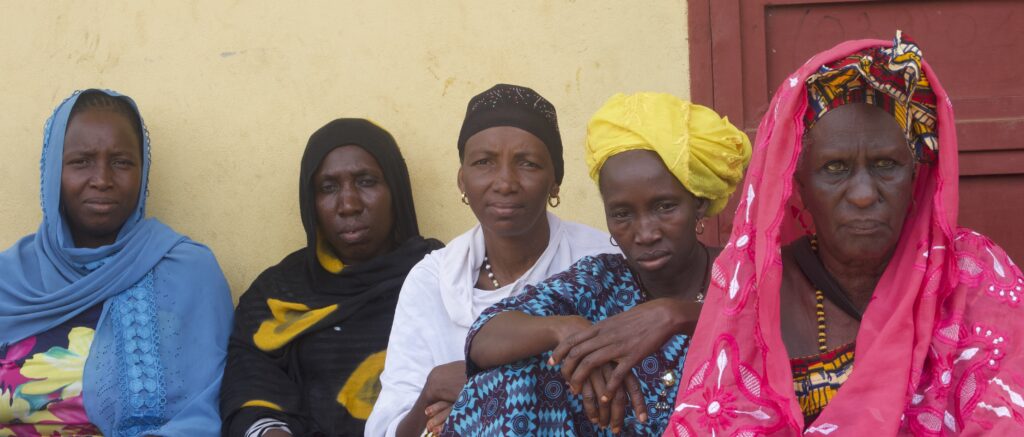
Hydropower is one of the chief sources of energy in the Republic of Guinea in West Africa. The Souapiti dam, one of the country’s most prominent projects, is located on the Konkure River. The dam is projected to generate up to 2.016 billion kilowatt-hours (kWh) of electricity annually to Guinea, with the excess going to neighboring countries like: Guinea-Bissau, Liberia, Mali, Sierra Leone and Senegal. The hydroelectric power project was financed by the Export Import (Exim) of China through a public-private partnership (PPP) with the Guinean government, and the construction was done by the China International Water and Electric Corporation (CWE). The construction of the dam was completed in 2021, and is in operation. Given the build-operate-transfer (BOT) agreement, the Chinese company, in collaboration with the Guinean government, assumes a prominent role in the community due to its operational responsibilities. The Chinese company is directly involved in managing the dam’s day-to-day functions.
Site Visits and Workshop in Affected Communities
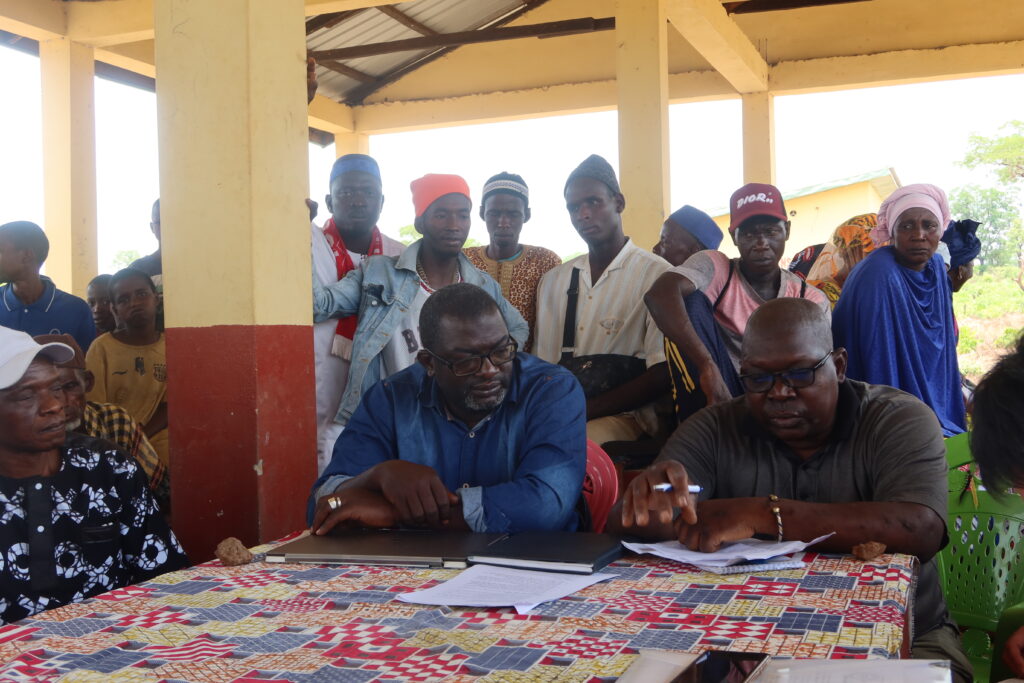
On 22-25 April 2024, International Rivers’ China Program Lead (Kirk Barlow) and the Africa Program Senior Campaign Coordinator (Genny Ngende) and CECIDE conducted three days of research. The group investigated the extent to which environmental and social considerations and policies were incorporated in the construction of the Souapiti hydroelectric dam, as well as the mitigating steps post-construction. The three-day investigation involved traveling to the villages of Madina Tahiré, Tènè Kansa and Khouloufa (located in the Dubreka prefecture North West of Guinea) whose inhabitants were directly impacted by the construction of the dam. This was then accompanied by an information-sharing and exchange session on the fourth day in Madina Tahiré. Madina Tahiré and Tènè Kansa are two villages that consist of resettled communities; whereas Khouloufa is a village where communities have not been resettled. The common thread in all three communities was the gross adverse environmental and social impacts experienced as a result of the Souapiti hydroelectric dam.
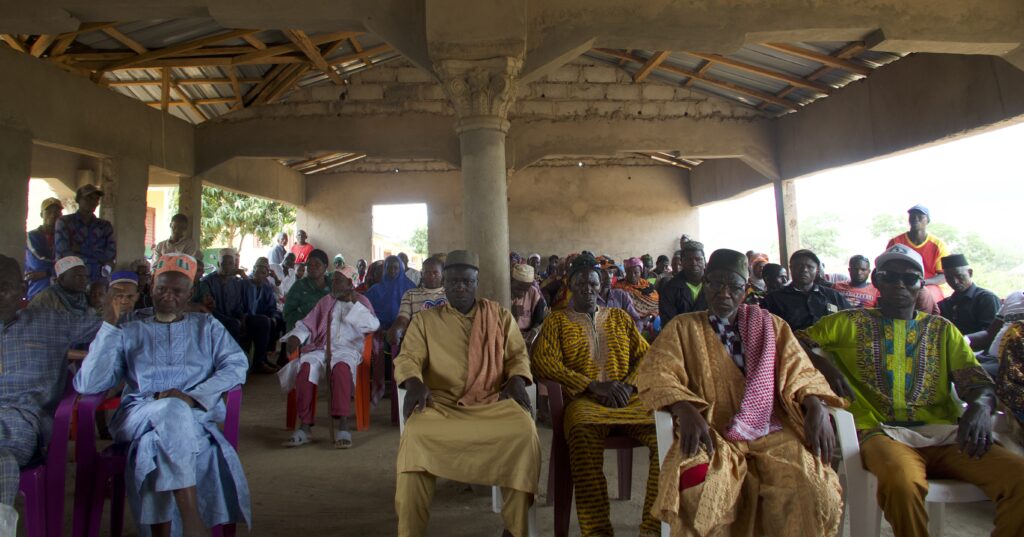
According to the community members, the living situation before the dam’s construction was in direct contrast to life after the dam. Communities had arable land, access to water and ownership over their land. Each family had a home that was not overcrowded and did not include extended family members. Their farmlands were within easy access to clinics and schools. As subsistence farmers, they ate from their own land and also sold their produce at the community marketplace. Unlike the marketplace built for them by the Chinese company after the construction of the dam, their marketplace was situated near a main road where they could purchase and sell their goods to other communities. This was also a platform for social exchange between different communities.
During the consultation process, community members did not fully comprehend the information given to them about the construction, and they had merely believed that the government would relocate them to an area where they could live as they previously had lived. Community members further reported that they were given documents whose content they did not fully understand. They were then informed of when to vacate their homes and land. According to Guinean law and international law, before the start of any infrastructure project, there needs to be adequate public consultation and participation. Communities are consulted and informed of the particulars of the project in order to consent to it. In this case communities were not adequately consulted as they did not understand the project enough to consent.
Displacement has often been a consequence of most large hydropower projects. Common practice dictates that some impacts of displacement (like loss of land and homes) be mitigated by a Resettlement Action Plan (RAP) that provides displaced communities with land and housing. This is accompanied by compensation for lost assets. Despite this, the lands on which the Madina and Tahiré communities had been resettled were barren – incapable of producing food – as well as extremely limited water resources. For the Khouloufa community that was not resettled, the arable farmland originally sustaining the community was destroyed due to the reservoir flooding and they were left only with barren land as a result. However, because the Khouloufa community had initially refused to be resettled, there was no further resettlement plan presented to them and they no longer had a means of supporting themselves. The resultant effect of infertile land for all three communities has been food scarcity. Additionally, the dried-up bore holes in Madina Tahire and Tènè Mansa and the flooded reservoir in Khouloufa have resulted in water scarcity. International law stresses the importance of access to water. According to General Comment no. 15 on the Right to Water, water is “indispensable for leading a life in human dignity (…) it is a prerequisite for the realization of other human rights.” Further, water is important to food security. The irony of communities living near a river and lacking water to drink and irrigate their land has not escaped us.
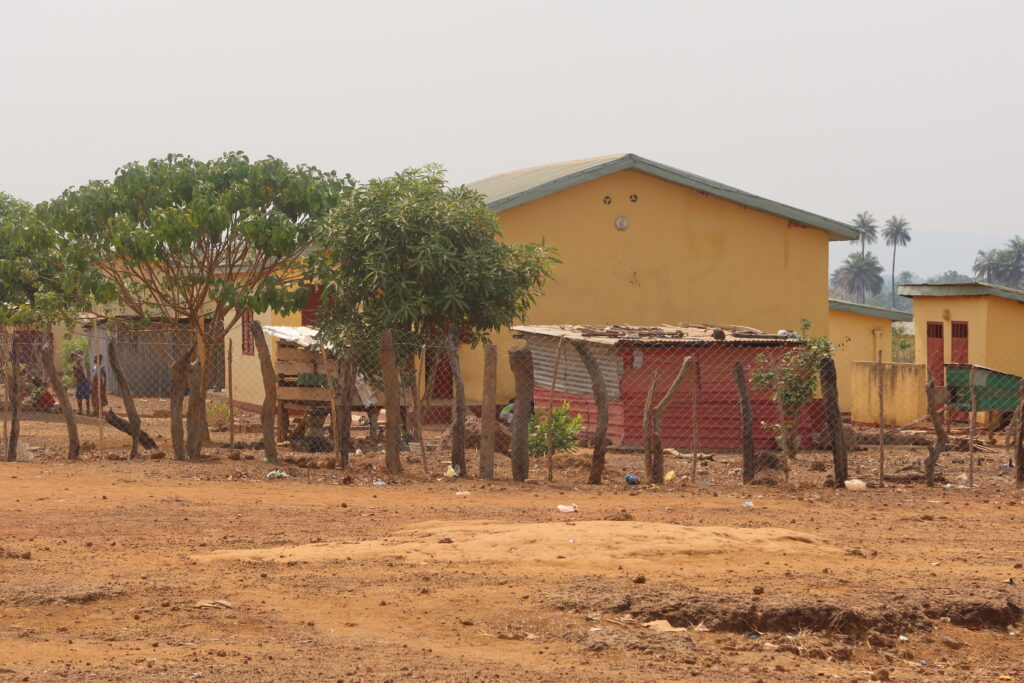
In all three communities, the physical infrastructures that provide basic amenities like water pumps and storage, healthcare, housing and education are dilapidated. Classroom doors are broken and only one teacher comes to teach the entire village’s students. The village of Khouloufa only has one nurse who has been forced to personally purchase a bed and travel great distances to collect vaccines with no refrigeration other than a cooler filled with ice packs. In Madina Tahire, the women rely on the older women to help with childbirth. Homes are overcrowded with single households housing up to 20 multi-generational family members, with one bathroom shared across 3-5 households. Prior to resettlement, a census was conducted to determine how many people would be resettled, and subsequently where people would be allocated. The resettled communities were sent to villages that already had inhabitants. Further exacerbating not only overcrowding in these homes, but also in the respective villages. This begs the question as to whether a census was accurately completed to determine the actual figures. If one was done, the inference drawn is that it may have underestimated the number of impacted communities or the size of land to accommodate everyone.

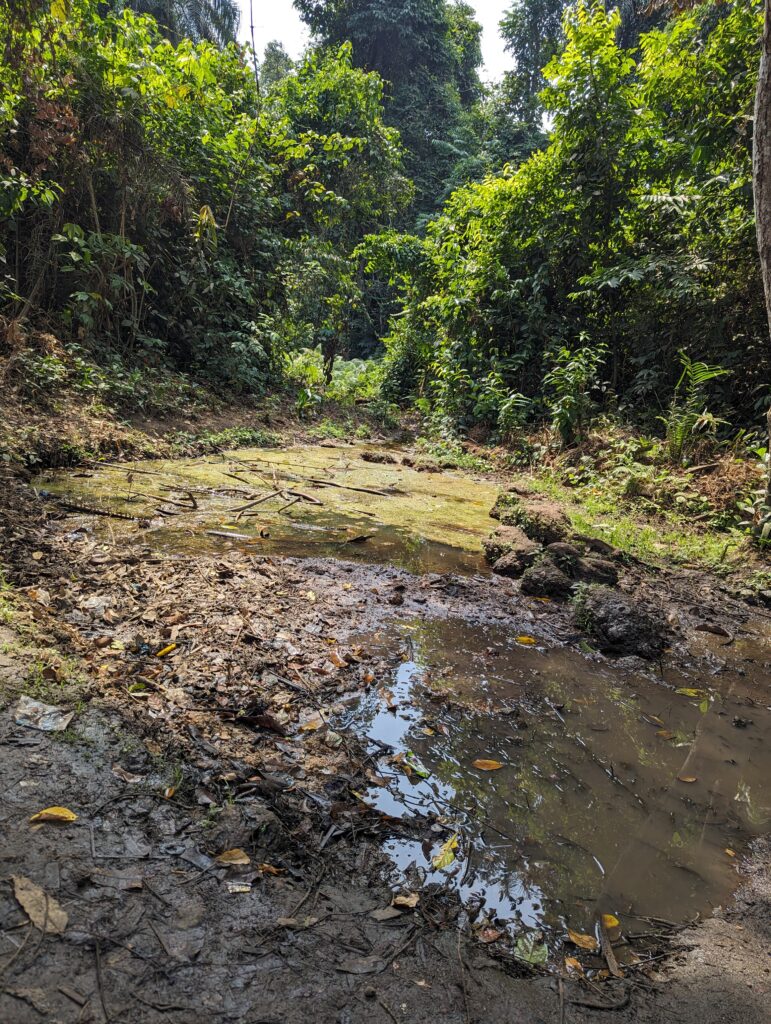
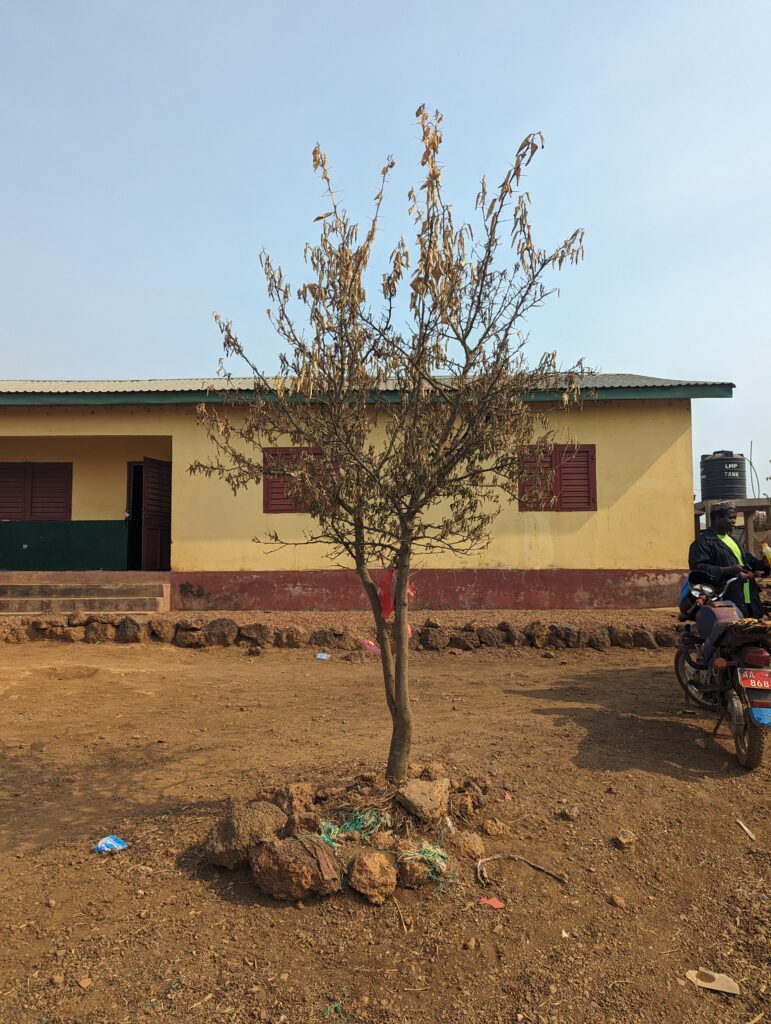
The negative impacts identified on days one and two necessitated a workshop for the community, which would not only provide the community with indispensable information but also provide a platform for information-sharing by community members, CECIDE and International Rivers. The workshop was attended by the community of Madina Tahiré, the sub-prefect of the town of Tondon (in the prefecture Dubreka), as well as a government official from the mayor’s office. The workshop covered three areas:
- environmental and social laws and policies in place at both the domestic and international levels;
- the possible routes for remedial redress; and,
- a simulation exercise to quantify assets.
The first topic emphasized the importance of free prior and informed consent (FPIC) and that it is recognised in both Guinean and international laws. This human rights principle ensures that communities are well informed of the project and freely consent to it. This further speaks to the human rights to information, participation and development as laid out in the Guinean constitution, the International Covenant on Civil and Political Rights (ICCPR) and the African Charter on Human and Peoples Rights (African Charter). The second topic focused on judicial and non-judicial mechanisms to obtain remedial redress. These include the Guinean court system and the African Commission on Human and Peoples Rights (African Commission). It further looked at the non-judicial mechanism of EXIM China. The third part was a simulation exercise. The purpose of this was for communities to practice negotiating for better compensation on the basis of assets that have already been quantified by them and not determined by any other party.
Concluding Remarks and Recommendations
The four-day activities revealed that community members were not necessarily against infrastructure development. They are against the negative impact of such including lack of electricity and water access, the loss of farmland, the loss of homes, loss of their livelihoods and their way of life. The irony of this word ‘development,’ which connotes progression, actually connotes regression for dam-affected communities. These negative impacts are salient issues that the government and the Chinese company have to resolve.
Additionally, the issue of ownership may have far-reaching implications. For communities regulated by customary law, the loss of land is effectively loss of ownership. The significance of that is generational because it halts the customary practice of succession. Although property rights are not as immediate as water access, they still fall squarely as a current issue because the generally accepted notion that development should be sustainable means that the human rights of present and future generations ought to be protected.
To this end, the government should first consider an alternative energy source, like solar and micro-hydropower, which generate electricity with less negative environmental and social implications than large hydropower. This means that the following issues are resolved: loss of farmland and homes, loss of livelihood and ownership over land. The risk of flooded reservoirs is reduced, solving the water shortage crisis and environmental degradation. Second, all infrastructure projects should be subject to human rights law. This will ensure full participation of communities through the human rights-recognised principle of free prior and informed consent (FPIC). This would mean that communities would have access to all studies and documents regarding the project in order to make informed decisions. Additionally, as rights-holders, communities would be entitled to remedial redress through the judicial system. Third, the Guinean government and all companies involved should collectively allocate a fund to ensure just compensation for loss of assets. Last, there should be short courses, workshops and training for communities, government officials and companies involved to better equip them on sustainable development, as well as environmental and social impact assessments. This can be achieved by partnering with local and/or international civil society organizations (CSOs), academics and legal practitioners well-versed in these issues.
Photo credits: International Rivers

